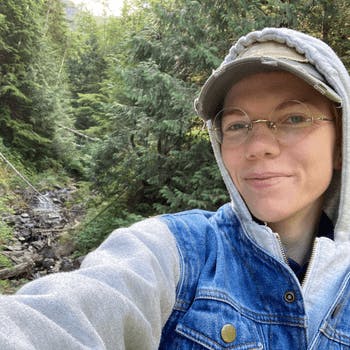
For this week’s case study question, you needed to have a familiarity with the transtheoretical model, or stages of change theory. This model identifies five stages of change, occurring in the following order: pre contemplation, contemplation, preparation, action, and maintenance. Motivational interviewing often makes use of the transtheoretical model, because MI often helps clients connect with their motivation for change and set goals that move them toward it.
Let’s examine the five stages as they relate to the client in this week’s case study.
Precontemplation - Folks in this stage are not consciously aware that they need or even want to make a change. These clients may demonstrate resistance in treatment. The client in this week’s case study does not occupy this stage of change because her statements suggest that she is aware that a problem exists.
Contemplation - This is the correct answer! The client is aware that a problem exists, but she has not demonstrated a concrete understanding of her alcohol use and she does not have a plan for changing it.
Preparation - People in this stage have a more thorough understanding of what behavior they’d like to change and how they’d like to change it, but they haven’t begun to make the actual change yet. They may spend time gathering information to get ready for the action stage. The client is not yet preparing for a specific change, and so this is not the correct answer.
Action - People in this stage are making the change itself. They may benefit from positive reinforcement and reminders of their reasons for behavior change. The client has not begin changing her drinking habits, and so this choice is incorrect.
Maintenance - This is the final stage in the transtheoretical model, and it is characterized by more than six months of “abstinence from the adverse behavior” (Raihan & Cogburn, 2023). They can anticipate barriers to the change they’re making and proactively address these barriers. The client has not yet reached this stage.
What questions do you have about this model of change? What questions would you ask the client in this week’s case study?
*For this week's post, I referenced this article:
Raihan N, Cogburn M. Stages of Change Theory. [Updated 2023 Mar 6]. In: StatPearls [Internet]. Treasure Island (FL): StatPearls Publishing; 2023 Jan-. Available from: https://www.ncbi.nlm.nih.gov/books/NBK556005/


